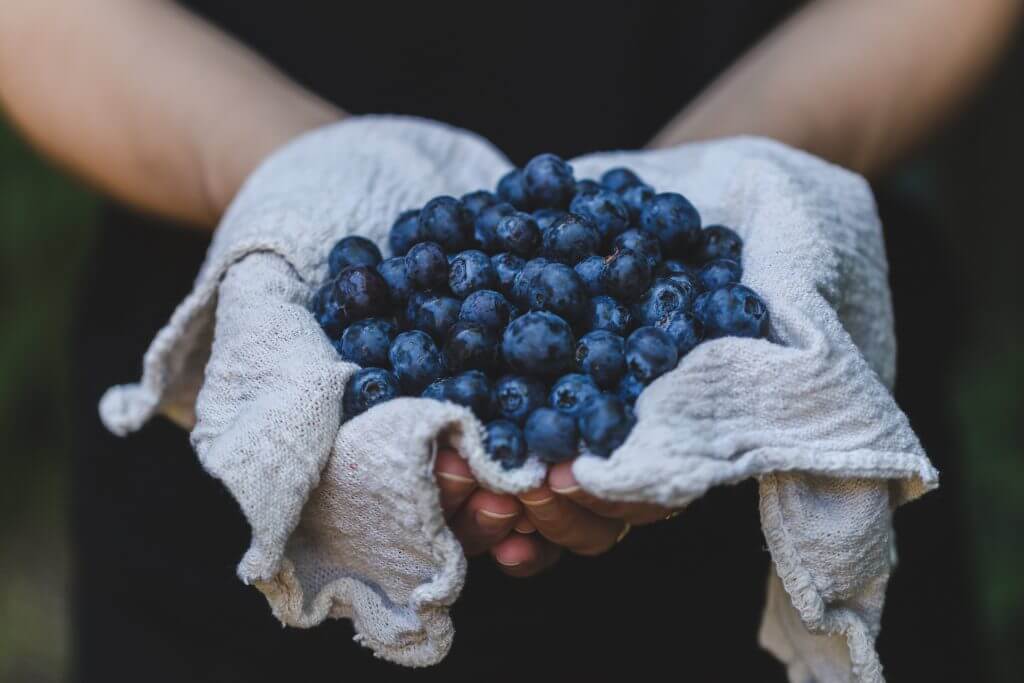In this guide, I’m going to reveal the best nootropics for boosting your cognition, memory, and focus to get the edge.
Smart drugs and “biohacking” are on the rise. It’s all but impossible to find a CEO, startup founder, or high-performer who hasn’t dabbled in some form of performance enhancement.
But there’s a problem.
This unprecedented rise in performance hacking has led to some unintended consequences. Namely that today, more than ever before, the average man has no idea how to navigate the murky waters of nootropics. We buy useless supplements because of unethical advertising campaigns, we imbibe dangerous, sometimes fatal drugs in an effort to get ahead, and experiment with our bodies in ways that could lead to profound consequences in the future.
So the question remains…
How do we get the best of both worlds? How can we optimize our brains and bodies for peak performance without spending thousands of dollars on risky procedures or synthetic drugs? How can we get more out of our minds and unlock the latent potential inside of us without sacrificing our sanity or longevity to do it?
Today, I’m going to answer those questions and give you a step-by-step guide to finding the best nootropics (that actually work) and get more out of yourself in the most effective (and safest) way possible.
Let’s dive in…
Medical Disclaimer: Always seek the guidance of your doctor or other qualified health professional with any questions you may have regarding your health or a medical condition. Never disregard the advice of a medical professional, or delay in seeking it because of something you have read on this Website. Seriously…don’t do anything stupid, hurt yourself, and then blame me m’kay? Be responsible.
The Best Non-Nootropic Nootropics: Simple Lifestyle Hacks and Strategies to Boost Brainpower, Memory, and Cognition
Before we can begin our conversation about the best nootropics and stacks for optimal performance, we must momentarily digress and address the very “unsexy” fact most biohackers and supplement companies avoid.
There is no pill, powder, potion, or supplement on the planet that will act as a panacea for your cognitive woes. And more often than not, haphazard supplementation and “biohacking”–e.g. Imbibing substances without first understanding your bloodwork and genetic makeup–will worsen the problems you are already experiencing.
In the same way that a cup of coffee (which we’ll talk about later) is no substitute for a good night of sleep, all of the smart drugs in the world cannot rectify an unhealthy or imbalanced lifestyle.
To achieve true cognitive optimization, you must work from the inside out. By implementing the following prescriptions, you will lay a strong foundation for your future performance and exponentially increase the positive effects gleaned from any smart drugs or nootropic stacks you decide to consume.
This isn’t what you want to hear. But it’s the truth and we must cover the basics first before introducing the best nootropic stacks available.
Use the following strategies first and then work nootropics and smart drugs into your life in an intentional and conscious way.
1. The Most Underrated (Free) Nootropic on the Planet

Sleep deprivation is a problem in America. A big problem. According to the CDC, more than 30% of the American workforce struggles with chronic sleep deprivation and many economists estimate that sleep deprivation costs more than$63 billion annually in lost productivity, on the job accidents, and preventable illness and injury.
Not only has sleep deprivation–consistently getting 6 or fewer hours of sleep a night–been linked to:
- Depression
- Delirium
- Hallucinations
- Impaired Cognition and an Increased Risk of Preventable Accidents
- An increased risk of infections, cancer, and overall mortality.
But studies have shown it can, quite literally, make you dumber.
People who regularly get 6 or fewer hours of sleep a night are shown to perform tasks slower, less efficiently, and with more errors than their well-rested peers. And the worst part?
They don’t even realize that their performance is being affected! The participants in these studies actually believed they were performing at normal levels even though every conceivable metric said otherwise.
Inversely, adequate sleep has been shown to cause: improved memory, lower systemic inflammation, improved immune function, elevated mood, learning and problem-solving abilities improved
As such, the best and most easily accessible “nootropic” you can use is to commit to getting at least 7-8 hours of sleep every night whenever possible. If that means you have to give up your favorite show or skip a few parts of your morning routine, do it. It’ll pay dividends in the long run.
In order to get the best sleep possible and wake up fully rejuvenated, I recommend:
- Invest in an insanely comfortable mattress (I recommend Helix brand)
- Buy blackout shades or tape black trash bags over your windows
- Set the thermostat to 67F or cooler and sleep naked (seriously, it’s healthier for you)
- Remove ALL electronics from your room and cover any light-emitting fixtures (like smoke detectors)
- Take 500-1,000 mg of Magnesium, 50 mg of Zinc, krill oil, and 100 mg L-Theanine 45 minutes before bed
- Turn off all electronics 60 minutes before you go to sleep
- Go to bed and wake up at the same time every day
- Consume a high fat snack 3 hours before bed and quit consuming alcohol 4 hours before sleep
If you do NOTHING else except improving your sleep (and get more of it), I promise you it will yield a greater impact on and improvement to your cognition, memory, and focus than anything else on this list.
2. Use This 15 Minute “Superset” to Tap into the Two Most Ancient Nootropics

Despite the recent “Sunlight Causes Skin Cancer” scare (which is based on exceptionally bad research) recent studies have shown a definitive link between vitamin D deficiency and impaired cognitive health. And other studies have shown that inadequate sun exposure can actually cause many of the cancers and diseases purportedly caused by sunlight.
When you don’t get sufficient amounts of sunlight, you can expect to suffer from mood swings, depression, anxiety, and a number of other negative effects. This is one of the reasons that suicide and depression rates tend to increase the further away from the equator you go.
Luckily, you don’t need to relocate to the beach in order to remedy this particular problem – although you could. Simply exposing your body to early morning sunlight (before 10 a.m.) for 15-20 minutes has been shown to dramatically improve your body’s vitamin D synthesis.
Personally, I recommend that you aim for at least 60-minutes of direct sun exposure (e.g. no sunscreen and no shirt or short sleeve clothing) each day.
If you live in a colder climate or do not regularly spend time outside, you should also supplement with 5,000–10,000 IU of a high-quality D3 supplement every day. (I prefer Jarrow’s Brand)
In addition to regular sun exposure or vitamin D3 supplementation, I encourage you to add in another practice called “earthing” to compound the benefits received from your morning practice.
Simply put, earthing is the act of standing in direct contact with the earth for a prolonged period of time, e.g. standing barefoot in the grass for ten minutes.
Although originally considered to be “hippy pseudoscience”, researchers have found a surprising number of tangible benefits that can be gleaned by reconnecting with the earth’s electron-rich surface.
Specifically, studies have found that regular earthing (15 minutes a day) can reduce pain, improve immunity, combat insomnia, reduce stress, and help fight brain fog.
All of which will result in (admittedly indirect) benefits to your cognitive health.
I encourage you to “superset” these practices together and spend the first 15-20 minutes of your day standing barefoot on the grass with direct sun exposure.
This might not be the most commonly prescribed “nootropic” hack, but I promise you, it will radically improve your overall health and cognitive capacity.
3. The “GOYA” Principle for Improved Health and Cognition

I’m going to tell you something you already know…
If you want to perform at the highest levels physically, emotionally, and mentally, regular exercise isn’t just a “good idea”…it’s a mandatory prescription for success.
Studies have shown time and time again that physical exercise is essential to improve cognitive function.
Elevating your heart rate and moving your body have been shown to improve memory, speed up cognitive processes, deepen focus, stave off Alzheimer’s and dementia, reduce age-related cognitive decline…and, of course, help you live a longer, fuller, and more mobile life.
But here’s the best part…
You don’t need to spend hours a day slaving away on the “Dreadmill” or pumping iron like Arnold to accomplish your goal of improving your brain health. You simply need to implement the “Goya Principle” (get off your ass) and move for 15-30 minutes a day.
In fact, most studies suggest that 150 minutes of moderate to intense exercise per week is all that’s necessary to optimize cognition.
Whether you go for a brisk walk, do a killer CrossFit workout, jog for a few miles, or do 30-minutes of intense yoga, get off your ass and do something every day to work up a sweat.
After a few months, you’ll never go back to a sedentary lifestyle ever again.
4. The “JERF” Rule to Improve Your Cognition, Immunity, Mood, and Physique

Unlike most “bloggers” out there, I’m going to admit something that few health or biohacking experts will…
Even though your diet is arguably the most important way to improve your cognitive health and improve your focus, mood, and memory, there is no “one size fits all” approach to dietary optimization.
While there are a few hard and fast principles you should follow, the human body is breathtakingly complex and dietary recommendations that work for one person can literally kill another.
Sure, you can and should:
- Consume 80% of your calories from organic whole food sources or JERF (just eat real food).
- Consume adequate amounts of healthy fats (typically 100grams a day for most men)
- Eat plenty of fruits and vegetables while moderating your intake of meat
But that’s where the “general” rules end.
While I could spend hours sharing the thousands of peer-reviewed papers and anecdotal reports about the vegan, ketogenic, paleo, high carb, low carb, or Atkins diet, my effort would be in vain.
The only “expert” you should listen to with regards to your diet is your own body. Instead of basing your decisions on the tired platitudes espoused by the health and fitness “gurus” of the world, base them on the unique data derived from your own blood work and gut biome.
I recommend that you invest in a gut biome analysis, food sensitivity test, and genetic test to determine the ideal diet for you. Anything else is simply a shot in the dark.
However, if you can’t afford these types of tests right now, stick to the basics.
Eat plenty of whole foods–veggies, fruits, grass-fed meats–and pay attention to how you feel. Continually modify your diet until you’re able to sustain peak energy levels all day long and invest in the more detailed tests later down the line.
The “Two Towers” of an Effective Nootropic Stack: Data and Detox
Before we get into the best nootropics you can use to boost your brainpower, improve cognition, and enhance your memory, we must first lay two final bricks in the foundation of your cognitive health.
Data and detoxes.
When most people attempt to “get the edge” and achieve better living through chemistry, they do so in an ignorant and haphazard way.
Instead of getting proper blood work and comprehensive testing with a medical professional to determine their deficiencies, they buy a multivitamin (containing 500% or more of the recommended daily dose for specific minerals and vitamins) that aren’t needed and call it a day.
So let me be blunt…you will never achieve peak cognitive or physical health without empirical data about the state of your own body.
In fact, consistently consuming excessive amounts of certain substances can cause more issues than it solves over the long run and allow those substances to build up to toxic levels (for example, iron).
Although it’s safe to assume that most of you reading this would be well-served by consuming a daily dose of Vitamin B, C, D3, Turmeric/Curcumin, Magnesium, minerals, probiotics, and fish oil, I strongly recommend that you get concrete data on your body before pursuing supplementation.
Sometimes, the only thing needed to beat a nasty bout of brain fog or inexplicable lethargy is to fix a single deficiency with a low cost $10 supplement.
In addition to acquiring concrete data on your bloodwork, hormones and vitamin/mineral levels, I encourage you to complete a quarterly detox to rid your body of toxic junk like mold, heavy metals, plastics, and environmental toxins (a challenge I’m facing as I write this post).
Our modern lives are filled with toxicity from car smog to polluted air to pesticides in our food to heavy metal-rich skin care products and water.
And the effects can be catastrophic.
By completing a quarterly detox that includes:
- Daily/weekly intermittent fasting (eat all your calories within an 8-hour window 6 days a week and eat nothing for 24 hours once a week).
- Binders like activated coconut charcoal, zeolite, and bentonite clay to bind and expel toxins out of your system.
- A liposomal glutathione supplement to boost your detox system
- Regular sauna or infrared sauna sessions (I recommend 20-minutes a day) to sweat out toxins
- An elimination diet consisting only of organic vegetables and moderate servings of grass-fed/finished meats
You can purge your body of the toxins that have been preventing you from performing your best.
There are a million ways to skin this particular cat and, individual human bodies are mind-bogglingly unique. As such I encourage you to talk with a holistic Doctor about different detox regimens to find something that works for you.
But if you will do these two things…if you will get concrete data on what your body needs (and then give it to it) and regularly detox the junk that inevitably builds up from being a human in the 21st century, you will have a rock-solid foundation on which to build your personal optimization strategy.
Level I: The Basics: The 12 Best Nootropics Every Man Should Have in His Cabinet
Now that you have an understanding of the foundational lifestyle and diet components that must be in place for you to use nootropics effectively, it’s time to discuss the best nootropics every man should have in his cabinet to get more out of his brain, body, and life.
1. Huperzine A
One of the most commonly used and most well-researched nootropic supplements on the planet is Huperzine A, found naturally in a Chinese moss Huperzia Serrata (from which it derives its name).
The plant has been used for hundreds of years in ancient medicine to help clear the mind and improve brain function and, more recently, scientists have discovered that Huperzine A does, in fact, confer tangible cognitive benefits to users.
Specifically, studies have shown that Huperzine A might help improve working memory, slow age-related cognitive decline, and improve acetylcholine–a “messenger molecule” released by nerve cells that serves a vital role in cognitive function and memory–levels.
Studies have found that a small dose of Huperzine (50 mcg taken twice daily) over four weeks reliably improved participants’ working memory and overall cognitive function and if you’re looking for an inexpensive and proven nootropic to get started with, it’s one of your best bets.
2. Caffeine
Arguably the most well known and widely used nootropic and legal stimulant caffeine. Although we’re all familiar with the way that coffee increases alertness and energy (by “antagonizing” or blocking adenosine receptors), research has found that caffeine confers a whole host of benefits to those who use it.
Specifically, caffeine has been shown to prevent memory deficits caused by diseases like Alzheimer’s, may restore memory after impairment, and significantly improves working memory and focus in healthy adults.
Furthermore, since caffeine is rarely (read: never) consumed in an isolated way, the specific vehicle you choose to consume your daily dose of caffeine can cause “unintentional” benefits in addition to improving your memory.
Green tea and coffee contain a plethora of polyphenols and antioxidants that have anti-inflammatory properties, neuroprotective effects, and offer a whole host of benefits to your cardiovascular health and nervous system.
As a general rule of thumb, you should try to moderate and cycle (something we’ll talk about later) your caffeine consumption–and all natural stimulants–to maximize its effects. Most experts recommend a daily dose of 100-300 mg (1-3 cups).
Consume your coffee or tea after eating your first meal with a tiny amount of sugar or grapefruit juice (to prolong the effects) or with a small dose of nicotine to enhance the cognitive benefits.
And be sure to take at least 48 hours a week or one week a month where you consume no caffeine or decaffeinated beverages to avoid building up a tolerance and maximize its effects.
An important caveat to this prescription is to make sure any coffee you consume comes from high-quality sources as most common coffee brands (I’m looking at you Folger’s) contain an abundance of mold and mycotoxins that wreck havoc on your body and cause nausea, the jitters, and anxiety. Personally, I recommend you opt for a brand like Bulletproof or Kion. They might be a bit more expensive, but you’ll notice a marked increase in your performance, even if you consume fewer cups every day.
Alternatively, you could use something like Yerba Matte or Matcha to enjoy all of the benefits of caffeine in a form that is rich in l-theanine (up next) and other adaptogens that reduce the negative side effects of over-stimulation.
3. L-Theanine
L-Theanine, an amino acid analog of glutamate found most commonly in green tea has been gaining steam over the past few years as a potent nootropic that serves to combat anxiety and caffeine-induced jitters.
Studies have shown that L-theanine increases alpha brain wave states–promoting attention, focus, and relaxation without fatigue–works synergistically with caffeine to promote concentration, memory, and motivation, and can modulate the release of dopamine to improve your mood.
Effectively, L-theanine combats the negative side effects of caffeine consumption and allows users to tap into relaxed flow states more easily.
At this time, there are no studies showing any negative side effects from L-theanine consumption and it is generally considered to be one of the safest nootropic compounds on the market.
I recommend that you consume L-theanine twice daily in 50-100 mg doses (experiment to see what works for you). Consume one dose early in the morning with your first cup of coffee and another dose 30-60 minutes before bed to promote relaxation and quality sleep.
4. Gingko Biloba
Gingko Biloba has been a staple in nootropic stacks and ancient medicine for centuries. And while it isn’t the memory and cognition panacea it was marketed to be, research has shown that regular use of the Gingko plant can delay aging, improve memory, and bolster attention.
Specifically, Gingko has been shown to increase BDNF levels (Brain-Derived Nootropic Factor…the same thing your brain releases after an intense cardio session), improve cerebral blood flow, reduce stress, anxiety, and corticosterone levels, and improve short term memory.
However, in some users, Gingko can cause several undesirable side effects like vomiting, diarrhea, and stomach cramps so I encourage you to start with a smaller dose and work your way up from there.
For most of you, a daily dose between 100-150 mg is more than sufficient to maximize the positive benefits while reducing the likelihood of negative side effects.
5. Bacopa Monnieri
Bacopa Monnieri, also known as “Brahmi” is a water hyssop herb that has been used in Ayurvedic medicine for centuries to improve memory, reduce anxiety, and treat epilepsy.
Similar to Huperzine A, emerging research is showing that Bacopa can, in fact, deliver on many of the promises made by ancient healers and studies have found that regular use of Bacopa can:
- Boost brain function (cognition, memory, and focus).
- Reduce symptoms of ADHD in children and adults
- Reduce anxiety
- Alleviate stress
- And lower your blood pressure
Although Bacopa has been shown to cause unpleasant gastrointestinal side effects in some users (and can interact with certain medications), it is considered to be safe for most people in doses of 300-450 mg a day.
6. Lion’s Mane
For century Eastern healers and culinary artists have used lion’s mane both recreationally and medicinally in a variety of different forms (e.g. raw, cooked, steeped, etc.) and new research is proving that this powerful mycelium might be one of the most potent nootropics on the planet.
In fact, Paul Stamets, a multiple-time guest on the Joe Rogan podcast and one of the leading mycologists in the world (the man literally wrote the book on mushrooms) is working on a patent for an Alzheimer’s cure that is comprised of only lion’s mane, a micro-dose of psilocybin-containing mushrooms (aka “shrooms”), and niacin. Although it’s far from FDA approval, numerous studies have concluded that Lion’s Mane can:
- Protect against dementia and Alzheimer’s
- Provide relief from mild depression and anxiety
- Expedite recovery from nervous system injuries
- Combat specific forms of cancer
- And boost the immune system
Anecdotally, many experts and luminaries claim that Lion’s Mane improves cognitive function, enhances memory, and sharpens focus and more research is being conducted to test the veracity of these claims.
Personally, I recommend that you opt for an “All in one” mushroom supplement from Fungi.com to get the biggest bang for your buck. Something like this.
Or, if you’re more of a traditionalist, you can grow your own batch of Lion’s Mane mushrooms in your backyard, grind them up, and stir them into your morning coffee.
7. Astragalus
Astragalus, one of the most famous and widely used substances in ancient Chinese medicine is also one of the most established herbs in modern medicine and is frequently used in IV form to help assuage the destructive effects of chemotherapy.
Studies on the benefits of Astragalus have shown that the variety of saponins, flavonoids, and polysaccharides contained in the substance can promote consistent energy levels, boost your immune system, and serve as what Ben Greenfield refers to as “A longevity adaptogen” (e.g it helps promote cellular health and stave off the effects of age-related cellular decay).
While you can supplement with Astragalus by itself, I personally recommend that you opt for something like FourSigmatic’s Adaptogen blend which contains coffee, Astragalus, tulsi, and several other neuro-stimulating compounds.
8. Omega 3’s
Easily one of the most well-researched and proven nootropic compounds on the planet are omega 3s. Naturally occurring in fish, high-fat fruits and vegetables (like avocados and coconuts), and nuts, omega 3’s have been proven to:
- Stave off anxiety and depression
- Promote brain health
- Reduce heart disease
- Lessen ADHD symptoms
- And reduce age-related neurodegenerative disorders
But there’s a catch.
Most omega 3’s on the market contain very low concentrations of DHA and EPA (the primary components responsible for omega 3’s benefits) and many of them contain harmful levels of mercury, arsenic, and other heavy metals.
As such, you need to be extremely careful when selecting an omega 3 supplement. If you pick wrong, you’ll either waste your money or actively put your health at risk.
To save you the hassle of researching the myriad of omega 3 supplements on the market, I recommend that you opt for either Legion Athletics Triton supplement, Wiley’s Finest, or Nordic Natural’s.
All three companies undergo rigorous third-party testing and are considered to be some of the best and most reputable supplement manufacturers on the planet.
9. Ashwagandha
If you’re looking for an “all in one” nootropic compound to improve cognition, boost your testosterone levels, and improve every aspect of your physical and mental performance, you need look no further than Aswagandha.
This ancient medicinal herb, classified as an adaptogen–meaning it helps your body manage stress–has been used for centuries and is considered to be one of the best and most widely researched nootropic compounds available today.
Not only has Ashwagandha been shown to:
- Reduce cortisol levels
- Alleviate symptoms of depression and anxiety
- Boost testosterone and fertility in men
- Reduce inflammation
- Improve memory
- And lower cholesterol levels
But it’s also been shown to have potential anti-cancerous effects and improve muscle mass and strength in users.
Typically, experts recommend a dose of 450-500 mg 1-2X a day as needed. (I recommend this brand)
10. L-Tyrosine
L-Tyrosine is an amino acid that serves as a precursor to some of the most important neurotransmitters including dopamine (the feel-good/motivation chemical), adrenaline, and norepinephrine.
When your Tyrosine levels are low, your brain can develop deficiencies in important neurotransmitters, leading to anxiety, depression, and brain fog.
Inversely getting sufficient amounts of Tyrosine through diet and supplementation have been shown to:
- Relieve stress
- Reduce depression
- Improve mood
- Increase motivation
- Combat SAD (seasonal affective disorder).
Most experts recommend 500 mg of Tyrosine taken once daily, either in the morning or at night.
It’s important to note that you should not take Tyrosine if you are using SSRIs (for more on SSRIs and alternative depression treatments, click here) as too many of the various neurotransmitters can be dangerous to your brain.
Bonus: Qualia Mind, The Natural Adderall Alternative
Now, if you’re anything like me, you want to get all of the benefits of an intelligently formulated nootropic stack…but you don’t want to turn your kitchen cabinet into a GNC or set 20+ reminders on your phone so you can remember to take an absurd number of pills.
Luckily, there’s a solution.
Over the past few years, the folks over at Neurohacker Collective have been working on creating an evidence-based and rigorously tested nootropic to help you get everything you need to optimize your brain…without spending a fortune to do it.
Enter Qualia Mind, one of the best nootropic stacks on the market and what my Editor refers to as “One of the best natural Adderall alternatives”.
Qualia Mind includes:
- 6 Nootropic compounds
- 7 Neuro-vitamins
- 2 Antioxidants
- 6 Adaptogen Extracts
- 5 Amino Acids
- 2 Choline Donors
And all of their products are third-party tested for purity and the research for each ingredient is readily available on their site.
While Qualia might seem a bit expensive at first (costing $60 for their “Focus” blend and $120 for their “Mind” blend), when you do the math, it actually works out to be incredibly affordable.
Instead of spending hundreds of dollars on dozens of different supplements and performance enhancers, you can enjoy all of the benefits of the best nootropics at a fraction of the cost.
The company is backed by some of the biggest names in the health and biohacking spheres (including Ben Greenfield, Jason Silva, and Mark Divine) and has garnered a reputation as the best nootropic stack on the market and one of the best legal stimulants you can get online. I strongly encourage you to give it a try and see how it works for you.
And in case you’re wondering, no…I’m not affiliated with the company (at least not yet). I’m just a believer in sharing great products with my readers.
Level II: 3 “Experimental” Nootropics to Accelerate Your Cognitive Performance
With your foundations in place and your basic nootropic stack in hand (or in the cabinet as it were), we now arrive at the second level of nootropic supplementation.
Many of the following nootropics are controversial (or simply misunderstood) and come with greater risks of negative side effects so proceed with caution.
If used correctly, these three nootropics can and will boost your brainpower and give you an unprecedented edge. However, if you abuse or misuse them, you run the risk of worsening the very problems you are trying to fix.
Biohack responsibly.
1. Nicotine
Although nicotine has gotten a bad rap over the past few decades due to its relation with cigarettes (which I do not recommend under any circumstances, ever…no really, do not smoke cigarettes), the substance itself is one of the most potent nootropics and best natural stimulants on the planet.
Nicotine has been shown to improve working memory, enhance memory consolidation, improve the efficacy of acetylcholine receptors, protect against Alzheimer’s and speed up cognition. In other words, it’s one of the best focus supplements available to the modern biohacker.
However, there’s a catch.
Although nicotine in and of itself is not harmful in moderate doses, it has a high addictive potential (and actually promotes addiction as a byproduct of enhancing cognition).
As such, you should be careful when using nicotine as a nootropic. Specifically, you should limit your consumption of nicotine to 2-8 mg/day (spread out in small 2 mg doses every 30-60 minutes) and, at most, four days a week.
The best way to dose nicotine is through a piece of gum or spray, however, if you’re looking for an inexpensive and more readily accessible alternative, you can use the 3mg tobacco-free Zyn pouches found at most gas stations.
2. Piracetam
Piracetam, a relatively new synthetic nootropic and member of the racetam family (and one of the most promising substances being tested to treat Alzheimer’s and stroke patients) has quickly become one of the “golden children” of the biohacking world.
Due to its lack of observed adverse side effects, piracetam is widely used by performance hackers all over the world to restore cognitive performance, reduce depression, and enhance cognition.
While the research on piracetam use in healthy adults is relatively sparse, the studies that do exist are promising. Specifically, in a double-blind, placebo-controlled study, researchers found that a daily dose of piracetam improved verbal memory in healthy college-age adults. And unlike many other common nootropics, piracetam is not a controlled substance and can be legally obtained through hundreds of online retailers.
Racetams are one of the most widely used nootropics for a reason. They work, they’re (relatively) safe, and they’re incredibly affordable, costing roughly $15/month.
While the recommended dose varies widely from person to person, typically doctors recommend a dose of 1,200 to 4,800 mg/day broken up into three smaller doses.
3. Kratom
A widely used and highly controversial nootropic, Kratom is a plant indigenous to Southeast Asia and a member of the same biological family as the coffee bean. You can go here to learn more about this plant and find vendors.
While it comes in three distinct strains–white (stimulating), green (relaxing), and red (pain reliever)–sourced from a variety of regions, the white Kratom strain is the most commonly used form for cognitive performance and is the strain we’ll be discussing in this section.
Although Kratom has been used for centuries by the indigenous peoples, the red strain of Kratom was first introduced in the United States as a potential cure for opioid addiction since it affects similar neural pathways to common opiates without the deleterious side effects.
Today, the white strain is most commonly used for its natural stimulant effects and ability to sharpen creativity, focus, and confidence while providing an uplifting and mood-enhancing “high” that lasts for 4-6 hours with an almost imperceptible “come down”.
Unfortunately, due to recent abuse–particularly of the “red” strain which has strong pain killing effects and is often combined with other synthetic drugs–Kratom has come under fire from the DEA and has been outlawed in many states.
Assuming the jurisdiction in which you live has not (yet) prohibited the sale or consumption of Kratom, you can easily buy Kratom from local stores or online. However, it’s important that you do your research and find a high-quality source to get your ‘goods’. There are dozens of knock off supplement companies that sell low to nonexistent doses of Kratom to gullible shoppers.
While there are several legitimate Kratom stores in my area that I trust and regularly use, theKratomConnection.com is known to make high quality Kratom at an affordable price.
There are many advocacy groups fighting to make Kratom legal and there’s even a Netflix documentary about the substance titled Leaf of Faith (trailer above with Joe Rogan in it).
Level III: Psychedelics for Boosted Brainpower and Creative Thinking
It’s hard to go more than a day without hearing some entrepreneur or investor somewhere on the internet talking about their love affair with psychedelic substances.
And with good reason.
Despite their relatively recent prohibition, psychedelics have been used by human beings for tens of thousands of years and many experts posit the theory that they are, in fact, responsible for many of our species’ greatest advancements.
Even fifty years ago, substances like ketamine and MDMA (molly) were used widely in therapeutic practices until widespread abuse (and a political power play) lead to their criminalization and prohibition.
Today, many lawmakers are reconsidering the legislation surrounding psychedelics as studies from John’s Hopkins and other famous universities are beginning to find concrete evidence of massive therapeutic benefits related to these substances.
For example…
- A recent study conducted by the Beckley Foundation found that a single dose of psilocybin eliminated depression in 42% of patients (six months after the first dose) with 100% of patients showing positive changes in their depressive symptoms and no lasting side effects. Compared to SSRIs which have been shown to have an efficacy rate of lower than 0.02% and massive side effects including suicidal ideation.
- Another study by the Scottsdale Research Institute tested the use of MDMA in patients with PTSD and found that more than 54% of patients who used MDMA no longer fit the metrics for a PTSD diagnosis after treatment concluded.
- Dozens of studies have been conducted over the past decade showing that the use of psilocybin and LSD in terminally ill patients helped to resolve the trauma, anxiety, and depression they felt about their pending death with nearly 80% efficiency (again, after only one dose).
- A ketamine derivative has actually been approved by the FDA for the treatment of depression and is being actively used in clinics all over the nation.
And the research is growing stronger every day.
While there are a myriad of different ways to use psychedelics–from partying to transcendental experiences to personal exploration to dealing with death–for our purposes, we’re going to focus on the positive benefits of consuming microdoses or sub-perceptual doses of different psychedelic substances.
Unfortunately, because of their legal status, there is currently no medical literature or peer-reviewed studies on the efficacy of these microdoses. However, according to countless anecdotal reports, it seems that they are a powerful nootropic to add to your arsenal.
If you decide to pursue using psychedelics as a nootropic, users have found these useful:
- LSD: when you need a creative edge–e.g. For a podcast, writing an article, painting, music, thinking outside the box.
- Psilocybin: when you’re planning to spend time in nature or wish to engage in intense self-reflection and discovery (e.g. when making a big decision in your career or trying to solve a particularly challenging or chaotic problem that needs a different way of thinking).
- Ketamine: is mostly used as an effective antidepressant and we know that depression is notorious for decreasing motivation, feeling lethargic and brain fog. It has instant effects and can be used for self-reflection, introspection, and social connection. But be careful and work with a medical professional who can safely administer the therapy. A simple yelp search “ketamine IV therapy” will show you what’s available in your area.
The legal state of many psychedelics is still tenuous. For example, psilocybin mushrooms are legal in many cities but illegal in others and you can (legally) buy LSD derivatives like 1P-LSD for “research purposes” off online vendors but possessing even a small amount of standard LSD is considered a felony that carries a hefty sentence.
All that to say…don’t be an idiot. Getting caught with any of the following substances could put you behind bars for a very, very long time. And, as unjust (and flat out idiotic) as the legislation might be, it is still the law and, as such, you should tread with caution.
Proceed with Caution: 3 Powerful Nootropics that Work, But Wreck Havoc on Your Body
To end our conversation about the best nootropics, we need to discuss three of the most commonly (ab)used substances on the market.
Modafinil, Adderall, and Ritalin.
Although each of these drugs is undeniably powerful and will give you an almost unprecedented mental edge, these benefits come with some serious side effects and, before you go imbibing a cocktail of narcotics, you need to be aware of the potential pitfalls related with their use.
1. Modafinil
Modafinil, considered by many to be the literal “Limitless” pill has grown in popularity in recent years due to endorsements from top biohackers like Dave Asprey.
Modafinil has been shown to increase alertness, enhance focus, improve memory and mood, and reduce impulsive decision making and is touted by many as the best nootropic on the market.
While modafinil is one of the most powerful nootropic compounds available today, it doesn’t come without risks. The abuse or improper use of modafinil can lead to the disrupted development of executive controls in the brain (decision making and memory) and studies have indicated that modafinil may only improve cognition in individuals with lower IQs. And while it’s safer than most other illegal and legal stimulants due to its milder effects on neurotransmitter levels, there is still a risk of addiction, tolerance, and abuse.
I’ve experimented with Modafinil a few times and found that it can be a powerful tool to have in your arsenal so long as it is used appropriately and treated with respect.
It isn’t the type of nootropic you want to take every day or even every week. But when you’re backed into a corner and need to hit an important deadline or produce an inconceivable amount of work…it can help you get the job done.
2. Adderall (and Other Amphetamines)
Arguably one of the most widely used and abused nootropics today–some pundits refer to the current generation as “Generation Adderall”–amphetamines like Adderall and Vyvanse are powerful drugs that boost mood, motivation, energy, and focus.
I won’t beat around the bush. Drugs like Adderall and Vyvanse are awesome. They come with a euphoric high, feelings of invincibility, and the ability to sustain creativity and focus for much much longer than you otherwise could. There’s a reason amphetamines are so widely abused by Ph.D. students and tech employees.
They work and they work remarkably well.
But, like with Modafinil, these benefits come at a cost.
Not only have amphetamines been shown to cause anorexia, weight loss, and insomnia, but they are accompanied by a high risk of psychotic episodes, hallucinations, and addiction.
Furthermore, studies have shown that, in individuals without ADHD (the primary reason for which these drugs are prescribed), they can actually impair cognitive performance and memory.
Oh…and they’re a Schedule II narcotic so selling, buying, or using amphetamines without a prescription can result in some serious legal trouble.
If you legitimately have ADHD, amphetamines can be a powerful tool–when used sparingly–and will give you an unprecedented increase in your performance and focus.
But if you don’t? There are plenty of other substances out there to help you get a leg up without risking your sanity or freedom to do it. I recommend a natural adderall alternative like Qualia Mind or Alpha Brain from Onnit.
3. Ritalin
Ritalin, also known as methylphenidate is an incredibly prevalent smart drug similar to Adderall both in its effects and potential for abuse.
While it can confer many benefits–such as improved mood, memory, and focus–when used responsibly and with a legitimate medical need, it’s one of the most overrated smart drugs on the planet due to its countless side effects and high potential for overdose and addiction.
Ritalin can cause, among other things, insomnia, stomach ache, headaches, and anorexia. Overdoses (which can occur at almost any dose) can lead to agitation, hallucinations, psychosis, seizures, irregular heart rate,and beat, hypertension, and hyperthermia.
And frankly, it’s one of the least effective drugs I’ve ever tried.
If you plan to use any of the substances on this list, I would recommend that you try Modafinil first, amphetamines second, and forgo Ritalin altogether. The risks simply aren’t worth the rewards and the positive benefits can easily be achieved with other substances. There are plenty of other legal stimulants and focus supplements you can use to boost your cognition that don’t come with the risk of sudden death or a psychotic breakdown.
While I don’t recommend the long term use of any of these nootropics, amphetamines (obtained legally) and Modafinil can be used to achieve specific short term goals.
If you have a book to write, exams to pass, or a crazy deadline to hit, these substances will get the job done. But please use them sparingly and responsibly.
Conclusion
Nootropics are not a panacea.
You can’t “out supplement” a bad diet, lifestyle or lack of sleep even with the best nootropic stack.
However, when used intentionally and in conjunction with a healthy diet, regular exercise, connection with nature, and plenty of sleep, nootropics can give you the extra edge you need to achieve your goals and make massive progress toward the life you want.
Remember, there is no “one size fits all” approach here and it is highly recommended that you consult with a doctor before trying anything shared on this page.
To get the greatest benefit out of these compounds, you must have concrete data on your blood work and gut biome and first optimize what you already have before considering what are the best nootropics to try.
However, with a little experimentation and exploration, you can boost your cognition, focus, and memory and build a sharper brain that will serve you well.
If you’re considering nootropics to boost performance and productivity you’ll love my elite community of high performing men…
If you want my help?
Then click here to watch my new client orientation to learn more about becoming a stronger Grounded Man, breaking free from nice guy behaviors, and creating a powerful social circle of likeminded men and a high quality romantic relationship.
Not only will you get tapped into your own “band of brothers” in my elite community of men, but you’ll also have access to the best damn course training available for men as well as weekly group calls with my team of transformative coaches. No whiny boys, complainers or dabblers, for serious men only.
If you’re ready to push the boundaries of what’s possible in your life and become the man you’ve always wanted to be. This is the fastest way to do it.


![How to Beat Depression Naturally without Anti-Depressants and Paying a Therapist for Decades [Ultimate Guide]](https://www.knowledgeformen.com/wp-content/uploads/2018/04/Andrew-F-Depression-150x150.png)



